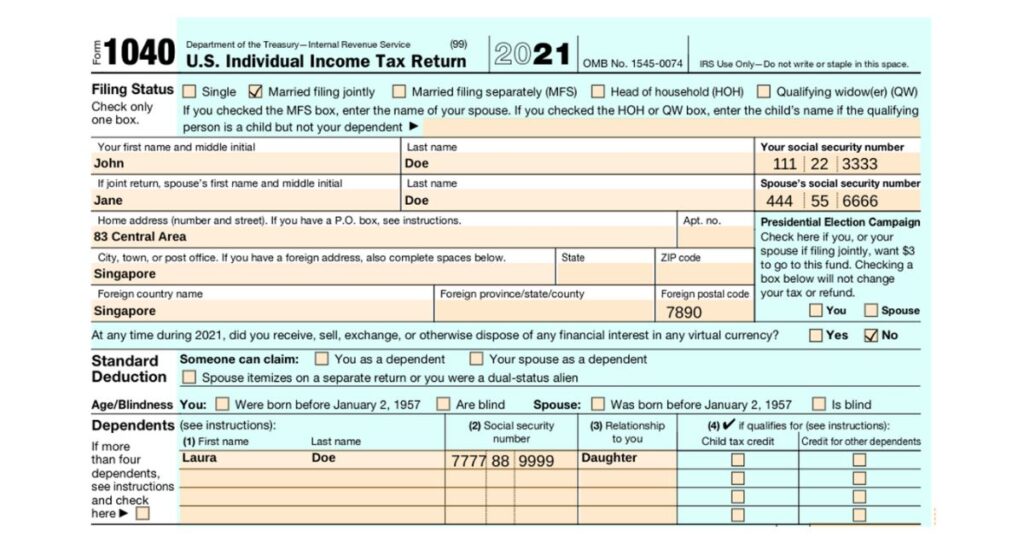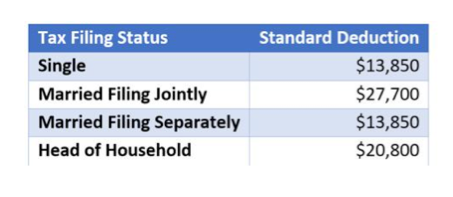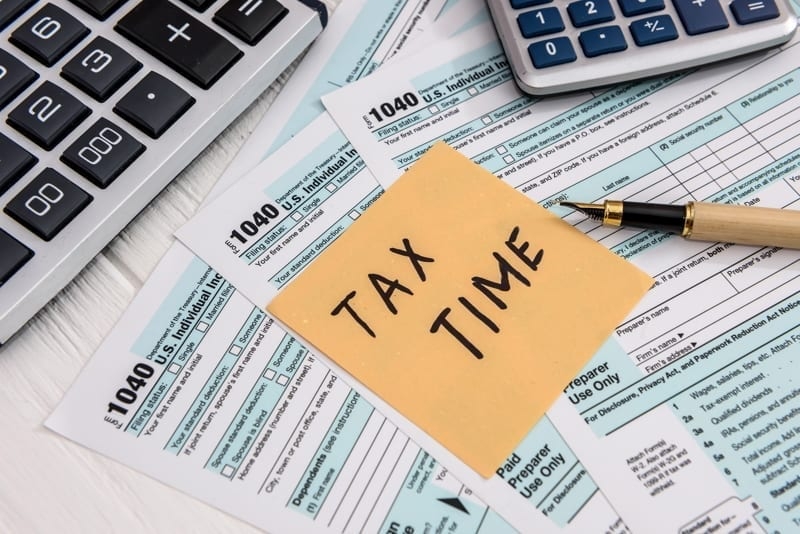A easy-to-follow walkthrough on calculating the FEIE Standard Deduction
Wiki Article
All You Required to Find Out About the Foreign Earned Revenue Exclusion and Its Link to the Conventional Reduction
The Foreign Earned Income Exclusion (FEIE) offers a vital chance for united state residents and resident aliens working abroad to minimize their gross income. Comprehending the eligibility requirements and claiming process is necessary. Nevertheless, the interaction in between the FEIE and the standard reduction can make complex tax method. Mistakes in maneuvering these policies can result in missed benefits. Checking out these elements discloses essential info for effective tax preparation and taking full advantage of financial benefits.Recognizing the Foreign Earned Earnings Exclusion (FEIE)
The Foreign Earned Income Exclusion (FEIE) works as a necessary tax obligation stipulation for U.S. residents and resident aliens who function abroad, allowing them to omit a substantial portion of their foreign-earned revenue from U.S. federal taxes. This provision is important for individuals living outside the United States, as it aids minimize the monetary worry of dual tax on earnings made in international nations. By using the FEIE, eligible taxpayers can decrease their gross income significantly, advertising financial stability while living and functioning overseas. The exclusion amount is adjusted each year for rising cost of living, guaranteeing it reflects present economic problems. The FEIE is particularly valuable for those in areas with a greater price of living, as it allows them to retain more of their earnings. Recognizing the technicians and effects of the FEIE encourages migrants to make enlightened economic decisions and enhance their tax situations while residing abroad.Qualification Demands for the FEIE
To receive the Foreign Earned Income Exemption, people need to satisfy particular qualification needs that consist of the Residency Examination and the Physical Presence Test. Furthermore, work status plays a crucial function in establishing eligibility for this tax obligation advantage. Comprehending these standards is vital for anyone seeking to capitalize on the FEIE.
Residency Test Criteria
Determining eligibility for the Foreign Earned Revenue Exclusion (FEIE) pivots on conference details residency test requirements. Primarily, people have to establish their tax home in a foreign nation and demonstrate residency with either the authentic residence test or the physical presence test. The bona fide house examination calls for that a taxpayer has actually developed an irreversible residence in a foreign nation for a nonstop duration that extends a whole tax year. This involves demonstrating intent to make the international place a principal home. Furthermore, the taxpayer must show connections to the foreign country, such as protecting employment, real estate, or household connections. Meeting these residency criteria is important for certifying for the FEIE and effectively reducing tax obligation liabilities on made revenue abroad.Physical Visibility Test
Fulfilling the residency requirements can also be achieved via the physical visibility examination, which uses an alternate path for getting approved for the Foreign Earned Income Exclusion (FEIE) To satisfy this test, a specific have to be physically present in an international nation for a minimum of 330 full days throughout a successive 12-month duration. This requirement stresses the relevance of real physical visibility, as opposed to just keeping a house abroad. The 330 days do not need to be successive, allowing for flexibility in travel setups. This test is specifically beneficial for united state people or homeowners functioning overseas, as it enables them to omit a considerable part of their international made revenue from U. FEIE Standard Deduction.S. taxes, therefore decreasing their general tax obligationWork Status Demands
Eligibility for the Foreign Earned Income Exemption (FEIE) depends upon details employment condition requirements that people must accomplish. To certify, taxpayers should demonstrate that their revenue is derived from foreign resources, typically through employment or self-employment. They must be either an U.S. resident or a resident alien and maintain a tax home in a foreign country. Additionally, people should fulfill either the Physical Existence Examination or the Bona Fide Residence Examination to establish their international status. Freelance individuals need to report their web incomes, guaranteeing they do not go beyond the established exemption limits. It's crucial for candidates to maintain appropriate documents to confirm their cases concerning employment condition and foreign revenue throughout the tax year.Exactly how to Claim the FEIE

Qualification Demands Clarified
For individuals looking for to gain from the Foreign Earned Earnings Exclusion (FEIE), comprehending the qualification demands is necessary. To certify, one should fulfill 2 key tests: the bona fide house test or the physical visibility test. The bona fide home examination relates to those who have developed an irreversible house in a foreign nation for a nonstop period, normally a year or even more. Conversely, the physical visibility test needs individuals to be physically present in a foreign nation for at the very least 330 days throughout a 12-month duration. FEIE Standard Deduction. Additionally, just made revenue from international resources qualifies for exclusion. Meeting these standards is essential for taxpayers desiring to reduce their taxable earnings while residing abroadNeeded Tax Return
Exactly how can one successfully claim the Foreign Earned Income Exemption (FEIE)? To do so, details tax return should be made use of. The primary form needed is internal revenue service Kind 2555, which permits taxpayers to report international made revenue and assert the exemption. This type requires comprehensive info concerning the person's foreign residency and the income made while living abroad. Additionally, if asserting the exemption for real estate prices, Form 2555-EZ may be utilized for simpleness, offered particular criteria are fulfilled. It is important to ensure that all required sections of the types are finished properly to prevent delays or issues with the IRS. Understanding these types is crucial for making best use of the advantages of the FEIE.Declaring Refine Steps
Claiming the Foreign Earned Earnings Exemption (FEIE) entails a collection of clear and organized steps. Individuals must determine their qualification, confirming they fulfill the physical existence or bona fide house examinations. Next, they should finish internal revenue service Type 2555, outlining income made abroad and any applicable exemptions. It is important to gather supporting paperwork, such as foreign income tax return and evidence of home (FEIE Standard Deduction). After loading out the kind, taxpayers should affix it to their yearly tax return, generally Kind 1040. Declaring digitally can improve this procedure, however making sure precise information is important. Ultimately, individuals should keep duplicates of all sent forms and supporting documents for future recommendation in case of audits or inquiries from the IRSThe Criterion Deduction: A Summary
The basic reduction functions as an important tax obligation benefit that simplifies the declaring procedure for numerous people and families. This deduction enables taxpayers to minimize their gross income without the requirement to detail deductions, making it an attractive option for those with simple economic circumstances. For the tax obligation year, the basic reduction amount differs based on filing condition, with various limits for solitary filers, couples filing jointly, and heads of household.
The common deduction is readjusted every year for inflation, guaranteeing its relevance gradually. Taxpayers that certify can choose between the conventional reduction and itemizing their deductions, usually choosing the higher advantage. By offering a baseline deduction, the basic reduction supports taxpayers in decreasing click here for more info their general tax obligation obligation, thus improving their financial placement. Understanding the conventional deduction is vital for efficient tax obligation preparation and taking full advantage of possible cost savings for people and family members alike.
Interaction In Between FEIE and Common Reduction
While both the Foreign Earned Revenue Exclusion (FEIE) and the basic reduction serve to decrease taxed revenue, their interaction can significantly impact a taxpayer's overall tax responsibility. Taxpayers who receive the FEIE can leave out a considerable quantity of their foreign-earned income, which may affect their eligibility for the standard deduction. Specifically, if a taxpayer's international earnings is completely excluded under the FEIE, their gross income may drop below the threshold required to assert the conventional deduction.Nevertheless, it is important to keep in mind that taxpayers can not double-dip; they can not make use of the exact same earnings to declare both the FEIE and the typical deduction. This suggests that cautious factor to consider is required when figuring out the most effective method for tax decrease. Ultimately, recognizing exactly how these 2 provisions communicate enables taxpayers to make informed choices, guaranteeing they maximize their tax advantages while remaining compliant with IRS policies.
Tax Obligation Advantages of Using the FEIE
Making Use Of the Foreign Earned Income Exemption (FEIE) can provide noteworthy tax obligation benefits for united state citizens and resident aliens living and working abroad. This exclusion enables eligible people to leave out a particular quantity of foreign-earned revenue from their gross income, which can bring about substantial tax obligation savings. For the tax year 2023, the exemption amount depends on $120,000, markedly decreasing the taxed income reported to the IRS.
In addition, the FEIE can aid avoid dual tax, as foreign taxes paid on this revenue might likewise be eligible for deductions or credit histories. By purposefully making use of the FEIE, taxpayers can maintain more of their revenue, permitting improved financial security. The FEIE can be advantageous for those who certify for the bona fide home examination or physical presence examination, providing flexibility in managing their tax commitments while living overseas. On the whole, the FEIE is a beneficial device for expatriates to maximize their funds.

Typical Errors to Avoid With FEIE and Typical Deduction
What pitfalls should taxpayers be aware of when asserting the Foreign Earned Income Exclusion (FEIE) together with the common deduction? One usual error is presuming that both advantages can be claimed concurrently. Taxpayers ought to comprehend that the FEIE needs to be claimed before the conventional deduction, as the exemption fundamentally minimizes taxable income. Failing to meet the residency or physical visibility tests can additionally cause you can try these out ineligibility for the FEIE, resulting in unforeseen tax obligation obligations.Furthermore, some taxpayers overlook the necessity of appropriate paperwork, such as keeping records of international earnings and travel dates. An additional frequent mistake is overestimating the exclusion amount, potentially as a result of incorrect types or false impression of tax guidelines. Eventually, individuals need to bear in mind that claiming the FEIE could affect eligibility for sure tax debts, which can complicate their general tax obligation scenario. Recognition of these challenges can aid taxpayers navigate the complexities of worldwide taxes better.
Regularly Asked Inquiries
Can I Assert FEIE if I Live Abroad Part-Time?
Yes, a person can claim the Foreign Earned Earnings Exemption if they live abroad part-time, supplied they meet the necessary requirements, such as the physical visibility or bona fide residence tests laid out by the internal revenue service.Does FEIE Affect My State Tax Commitments?
The Foreign Earned Revenue Exclusion (FEIE) does not directly affect state tax obligation responsibilities. States have varying rules pertaining to earnings earned abroad, so people should consult their certain state tax obligation laws for exact assistance.Exist Any Kind Of Expiration Dates for FEIE Claims?
Foreign Earned Earnings Exemption (FEIE) insurance claims do not have expiry days; nevertheless, they need to be asserted annually on tax returns. Failure to case in a given year may lead to lost exemption benefits for that year.How Does FEIE Impact My Social Security Conveniences?
The Foreign Earned Revenue Exemption (FEIE) does not directly influence Social Safety and security benefits, as these advantages are based on lifetime profits. Omitted earnings might reduce general incomes, possibly affecting future benefit computations.Can I Withdraw My FEIE Claim After Submitting?
Yes, a person can revoke their International Earned Income Exemption insurance claim after declaring. This revocation should be sent with the proper tax return, and it will impact their tax obligation obligations and possible reductions moving on.The Foreign Earned Income Exclusion (FEIE) presents an important opportunity for U.S. residents and resident aliens working abroad to decrease their taxable earnings. Recognizing the Foreign Earned Revenue Exclusion (FEIE)
The Foreign Earned International Exclusion EarningsExemption) serves as an essential tax crucial tax obligation Arrangement citizens united state residents aliens who work that, allowing them enabling exclude an omit portion substantial part foreign-earned income from Earnings federal taxationGovernment While both the Foreign Earned Revenue Exemption (FEIE) and the typical reduction serve to lower taxed income, their interaction can considerably influence a taxpayer's total tax responsibility. Utilizing the Foreign Earned Income Exemption (FEIE) can offer remarkable tax advantages for U.S. residents and resident aliens living and working abroad. Foreign Earned Income Exclusion (FEIE) insurance claims do not have expiry days; browse around this site however, they should be declared every year on tax obligation returns.
Report this wiki page